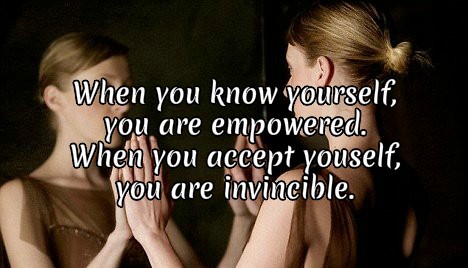In recent years, we have seen great debate arise over the theory of one’s ‘idealized self-image’. For many, this idealized self-image somewhat masks the true self of a person because it falsely inflates characteristics and opinions. Essentially, the idea is to use this self-image as a means of avoiding unhappiness in life but this very term, in itself, is objective.
For some, it is easy to cope with certain situations where others would struggle and so the parameters of ‘unhappiness’ move depending on the person in question. Ultimately, idealized self-image is known to come in many different forms and doesn’t always create ‘perfection’. For this reason, it can be hard to adhere to with the level of perfection desired being much harder to reach than others. In life, we often note how pride gets in the way of accepting ourselves for who we are which creates a need for acceptance before we can work towards any level of perfection.
When it comes to idealized self-image, there are also areas that can be considered bad, unethical, and simply immoral. Behind all idealized self-images, there are hidden negative tendencies including trends that seem to be overambitious, aggressive, and hostile. Since these contradict the very definition of having high standards as an idealized self, they can cause unwanted anxiety because we suddenly become exposed. When someone glorifies these negative tendencies and believes that they add strength and superiority, they feel shame towards those who propose good for their idealized self. In this scenario, the person is overlooking the fact that nothing causes fear and vulnerability quite like pride.
As you can see, there is conflict between the two sides of one’s idealized self-image. As we continue on the path to finding said image, we reach occasions where it becomes hard to keep up the charade. When these difficulties occur, they prove that we haven’t yet reached our idealized self and this leads to the removal of self-confidence.
On the other hand, there is now a genuine desire to accept the personality that one has and a sense of strength comes when the ideals are not reached but instead missed. Instead of falling into depression and experiencing guilt and anxiety, the ‘badness’ doesn’t quite have to be dramatized and there can be an opportunity to grow and move closer to the idealized self-image.
The topic of Idealized Self Image brings many interesting points for consideration. You can find additional insights in this topic in the Pathworks Lecture No. 83. The lecture welcomes you to a deeper discussion in order to continue this journey and Live Life Fully!




